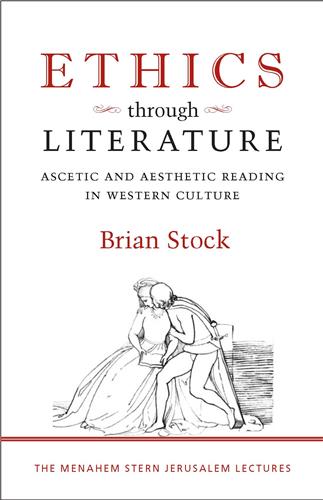Why do we read? Based on a series of lectures delivered at the Historical Society of Israel in 2005, Brian Stock presents a model for relating ascetic and aesthetic principles in Western reading practices. He begins by establishing the primacy of the ethical objective in the ascetic approach to literature in Western classical thought from Plato to Augustine. This is understood in contrast to the aesthetic appreciation of literature that finds pleasure in the reading of the text in and of itself. Examples of this long-standing tension as displayed in a literary topos, first outlined in these lectures, which describes “scenes of reading,” are found in the works of Peter Abelard, Dante, and Virginia Woolf, among others. But, as this original and often surprising work shows, the distinction between the ascetic and aesthetic impulse in reading, while necessary, is often misleading. As he writes, “All Western reading, it would appear, has an ethical component, and the value placed on this component does not change much over time.” Tracing the ascetic component of reading from Late Antiquity through the Renaissance and beyond, to Coleridge and Schopenhauer, Stock reveals the ascetic or ethical as a constant with the aesthetic serving as opposition, parallel force, and handmaiden, underscoring the historical consistency of the reading experience through the ages and across various media.


BRIAN STOCK is emeritus professor of history and literature in the Department of English at the University of Toronto. He has written a number of studies that deal with modes of perception between the classical and the early modern period including The Implications of Literacy, and Augustine, the Reader.

Founded in 1971, Brandeis University Press is a nonprofit publisher dedicated to publishing innovative, high-quality books for a general audience, as well as scholarship that advances knowledge and promotes dialogue in the humanities, arts, and social sciences around the world.
© Copyright 2024, Brandeis University Press
Brandeis University Press
Goldfarb Library 69-235, MS 046
Brandeis University
415 South Street
Waltham, MA 02453
(781) 736-4547
pressinfo@brandeis.edu

Stay up to date with the newest titles and promotions from Brandeis University Press—while saving 20% on your first purchase.